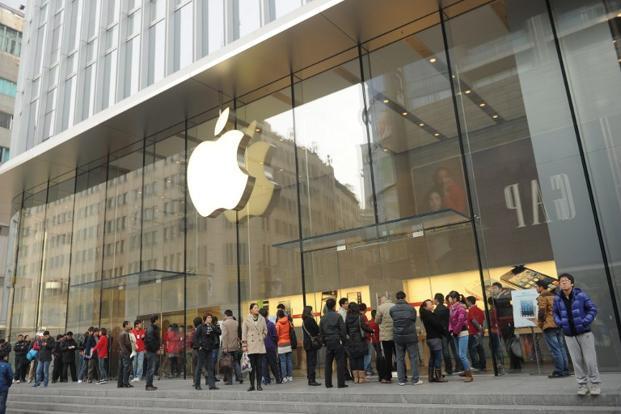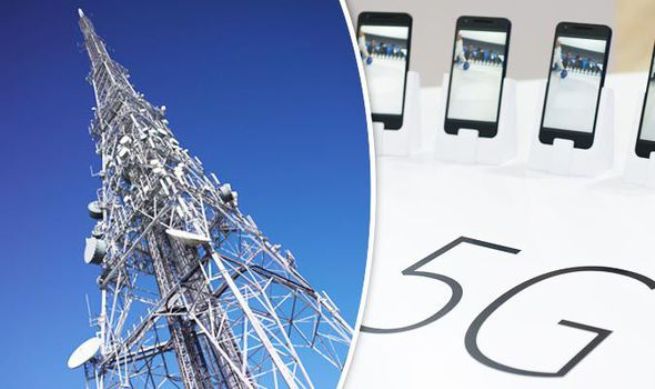By Okoh Aihe
This season, there is so much in the plate that one is trying to develop the mastery to attempt a sorting, from the very depressing and heart-wrenching to the absolutely ludicrous and bizarre, but all fusing together to create a world that is so uncertain or, if you want to hover on the extreme, summarily nihilistic.
The fear of COVID-19 continues to enjoy a convoluting spread and this could continue ad infinitum if something is not done urgently. Or so the Senate of the National Assembly must have thought last week when it mandated four committees to urgently look at a new technology that may have been maliciously accused lately of being complicit in the cause and spread of COVID-19.
In spite of what they say about the overwhelming advantages and pervasive and pointed reach of the 5G technology, it has not enjoyed a rosy welcome into the global technology ecosystem. The decision of the Senate in respect of the Committees which include: Communications, Health, Science and Technology and ICT and Cyber Crime to carry out an inquisition on the status of rollout and safety of 5G technology in the country, is only perhaps the latest on the long queue of suspicion.
The Senate’s position was in response to a motion raised by Senator Uche Ekwunife, PDP, Anambra Central; they have just four weeks to return to the Senate with their findings.
This is a matter deserving urgent attention as the life and safety of the people are at issue here.
One’s immediate reaction would have been to dismiss their position as the response of some dodos and dinosaurs whose predilection may not be in consonance with the complex nature of 5G technology. That on its own would be an irresponsible mistake. As elected law makers of the land they have the protection of their offices to examine anything that catches their fancy. 5G is more than a fancy. 5G will rule our tomorrow and create a new culture for business and social interactions.
However I would appeal to the Senate to go beyond the resting place of that little human frailty called emotions and do a damn good job commensurate with the weight of importance they place on the life of the ordinary Nigerian who they want to protect. My little contribution arising from my fleeting odyssey in the precincts of the telecommunications industry is to submit some information concerning what is happening in other parts of the world and how they are dealing with their demons to position for a technology that has come to unleash some science fiction reality on our world.
Is the fear of the Senate real? Yes. My position is not motivated by the mob mission of lynching an accused without reason or justification. Last week Thursday I was part of the over 700 participants from across the world who participated in a GITEX Global Virtual Webinar programme fortuitously titled: How Is 5G Creating Tomorrow’s Winners In These Uncertain Times. The bigger overarching question however was, Pole Position In The 5G Race: Where Do You Stand? Moderated from Jordan by Jawad Abbassi, Head of Middle East and North Africa (MENA) of GSMA, panelists were drawn from the Middle East, Europe, Asia and the Americas. At some point in the programme a question was raised concerning health concerns and conspiracy theories over 5G. 57 per cent voted in the affirmative, saying that the concerns and the conspiracies were real, urging operators to do more sensitization on the safety of 5G.
Quite clearly the Nigerian Senate is not alone in the journey it has embarked on except that distinguished members of the various committees must broaden their mind and be dispassionate enough to receive submissions from different stakeholders operating in the telecommunications industry.
In this journey, there are low hanging opportunities, repository of industry knowledge that the Senate must take advantage of. They include but not limited to the Nigerian Communications Commission (NCC), the regulatory agency of the telecommunications industry, the Nigerian Society of Engineers, two operating bodies in the industry – ATCON and ALTON, GSMA, ITU, WHO, ICNIRP and a whole lot of other organizations.
But are all the funny things we hear about the dangers of 5G and the harm the technology can do real? No. Here I speak mainly as one who does not want to go to bed at night with the bogey of a technology that could kill one in his sleep.
Concerning COVID-19, this is what the International Commission On Non-Ionizing Radiation Protection (ICNIRP) said in April, 2020: “It has been claimed that exposure to the electromagnetic fields (EMFs) generated by 5G devices can both cause COVID-19 and increase its severity. These claims are not supported by any evidence (not even extremely weak evidence), and the large body of scientific knowledge regarding EMFs relevance to 5G demonstrates that those claims are not feasible. EMF exposure to 5G devices does not cause COVID-19, nor does it have any effect on the disease process or health outcomes of those who are infected by the new corona virus (SARS-COV-2) that causes COVID-19. As described by the WHO, you need to physically come into contact with the corona virus to become infected by it, and as the EMFs from 5G cannot carry viruses, they cannot bring you into contact with the virus.”
On the part of GSMA, “Twenty years of research should reassure people there are no established health risks from their mobile devices or 5G antennas,” GSM chief regulatory officer, John Giusti told the BBC on March 17, 2020, adding however, that “while there is no evidence to support these claims, there are legitimate concerns about 5G.”
It is noteworthy that while some countries are living in morbid fear and building all kinds of myths around 5G technology, resulting in the burning down of 5G base stations in the UK, quite a few others have decided very boldly to have a head start in deployment and enjoy all the advantages that accrue to such audacious investment decisions.
Any advantage for having your leg in the pool first? A first mover advantage for nations and Carriers? The poll provided the answer. 79 per cent attendees at the virtual conference voted in favour of advantage.
Without doubt China and South Korea enjoy an overwhelming advantage in 5G connectivity. Some countries in Europe don’t want to be left behind although a whiff of conservatism is putting blinders on their part. Only recently Present Donald Trump of the United States boasted that the 5G race was America’s race to win, stating very clearly that the United States was not prepared to tolerate any competition in that respect.
Speaking early April, he said: “We cannot allow any other country to out-compete the United States in this powerful industry of the future. We are leading by so much in so many different industries of that type, and we just can’t let that happen. The race to 5G is a race America must win, and it’s a race, frankly, that our great companies are now involved in. We’ve given them the incentive they need. It’s a race that we will win.”
Why are nations in a hurry to embrace 5G? Here are projections by GSMA Intelligence. By 2025 there will be 1.7bn connections broken down in the following order: North America – 214m, Europe – 228m, Asia Pacific – 1.039bn, Latin America – 50M, MENA – 47, and Sub Saharan Africa – 30m.
The question is: Are the leaders in these countries so callous that they want to vaporize their people with dangerous technology? My take is an emphatic NO.
The projection for Sub Saharan Africa doesn’t look good at all but will Nigeria feature in it? This is one question I will implore the senate to tackle. Nations enjoying a clear lead in 5G deployment have attributed such growth to the vision of their governments and regulatory agencies. It happened in South Korea, Dubai – Smart City Dubai – in fact, Saleem Albooshi, Chief Technical Officer, DU, calls it clear direction top-down, from the leadership of the country; and Trump has recently demonstrated how leadership can mobilise an industry into action.
At some point, these figures will translate to cash, new jobs and a very strong hold on the future of man. Very soon you will have to wear 5G on your skin. So where will the Senate stand? To mobilise the regulator, NCC, into bold action or yield to hysteria and paranoia?
Whatever you do, dear Senators, remember this. History keeps record of the bold and the cowardly.
Okoh Aihe writes from Abuja



